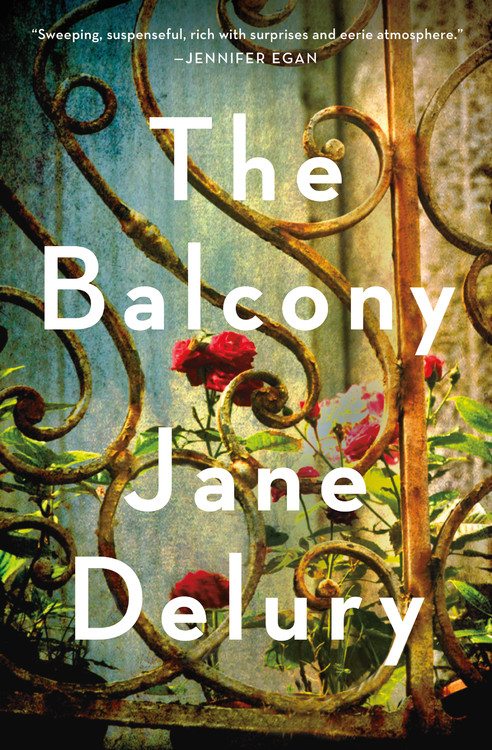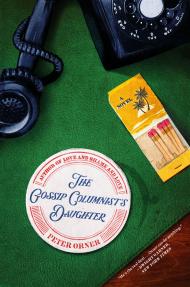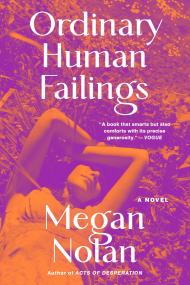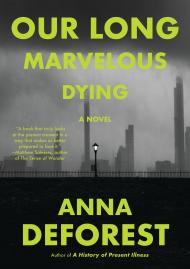By clicking “Accept,” you agree to the use of cookies and similar technologies on your device as set forth in our Cookie Policy and our Privacy Policy. Please note that certain cookies are essential for this website to function properly and do not require user consent to be deployed.
The Balcony
Contributors
By Jane Delury
Formats and Prices
- On Sale
- Mar 27, 2018
- Page Count
- 256 pages
- Publisher
- Little, Brown and Company
- ISBN-13
- 9780316554664
Price
$9.99Price
$11.99 CADFormat
Format:
- ebook $9.99 $11.99 CAD
- Audiobook Download (Unabridged)
- Trade Paperback $15.99 $20.99 CAD
This item is a preorder. Your payment method will be charged immediately, and the product is expected to ship on or around March 27, 2018. This date is subject to change due to shipping delays beyond our control.
Buy from Other Retailers:
A “breathtaking” century-spanning portrait of the inhabitants of a French village (Jennifer Egan), revealing the deception, despair, love, and longing beneath the calm surface of ordinary lives.
What if our homes could tell the stories of others who lived there before us? Set in a small village near Paris, The Balcony follows the inhabitants of a single estate-including a manor and a servants’ cottage-over the course of several generations, from the Belle vâpoque to the present day, introducing us to a fascinating cast of characters. A young American au pair develops a crush on her brilliant employer. An ex-courtesan shocks the servants, a Jewish couple in hiding from the Gestapo attract the curiosity of the neighbors, and a housewife begins an affair while renovating her downstairs. Rich and poor, young and old, powerful and persecuted, all of these people are seeking something: meaning, love, a new beginning, or merely survival.
Throughout, cross-generational connections and troubled legacies haunt the same spaces, so that the rose garden, the forest pond, and the balcony off the manor’s third floor bedroom become silent witnesses to a century of human drama.
In her debut, Jane Delury writes with masterful economy and profound wisdom about growing up, growing old, marriage, infidelity, motherhood – in other words, about life – weaving a gorgeous tapestry of relationships, life-altering choices, and fleeting moments across the frame of the twentieth century. A sumptuous narrative of place that burrows deep into individual lives to reveal hidden regrets, resentments, and desires, The Balcony is brimming with compassion, natural beauty, and unmistakable humanity.
What if our homes could tell the stories of others who lived there before us? Set in a small village near Paris, The Balcony follows the inhabitants of a single estate-including a manor and a servants’ cottage-over the course of several generations, from the Belle vâpoque to the present day, introducing us to a fascinating cast of characters. A young American au pair develops a crush on her brilliant employer. An ex-courtesan shocks the servants, a Jewish couple in hiding from the Gestapo attract the curiosity of the neighbors, and a housewife begins an affair while renovating her downstairs. Rich and poor, young and old, powerful and persecuted, all of these people are seeking something: meaning, love, a new beginning, or merely survival.
Throughout, cross-generational connections and troubled legacies haunt the same spaces, so that the rose garden, the forest pond, and the balcony off the manor’s third floor bedroom become silent witnesses to a century of human drama.
In her debut, Jane Delury writes with masterful economy and profound wisdom about growing up, growing old, marriage, infidelity, motherhood – in other words, about life – weaving a gorgeous tapestry of relationships, life-altering choices, and fleeting moments across the frame of the twentieth century. A sumptuous narrative of place that burrows deep into individual lives to reveal hidden regrets, resentments, and desires, The Balcony is brimming with compassion, natural beauty, and unmistakable humanity.
Genre:
-
"Shimmering... this multigenerational cast of characters has the reach of an epic novel... The vivid intimacy of Delury's canvas is enhanced by descriptive prose at once concise and lush."New York Times
-
"With the assurance of a seasoned pro, Jane Delury spans decades, adopts a multitude of voices, and explores with the keen-eyed sensibility of Elena Ferrante or Claire Messud marriage, infidelity, motherhood, aging, money, greed, and the workings of fate. A complex and utterly engaging debut."Alice McDermott
-
"The Balcony is sweeping, suspenseful, rich with surprises and eerie atmosphere. Jane Delury arrives on the scene of her debut with a sensibility fully formed and a breathtaking array of writerly gifts at her command."Jennifer Egan
-
"From the opening pages of The Balcony I was enthralled by Jane Delury's picture of Benneville and by her expansive sense of character. In ways both profound and moving she shows on page after beautiful page how her characters live inextricably in a time and a place. A stellar debut."MargotLivesey, New York Times bestsellingauthor of Mercury
-
"A subtly crafted and richly rewarding debut book of fiction...reminiscent of Olive Kitteridge...It is no stretch to mention Delury and [Elizabeth] Strout in the same sentence: Delury's debut book, with wise observations, intriguing twists and indelibly drawn characters, is filled with reading pleasures...The Balcony is an American's love letter to France, and a compelling saga spanning France's past century."The Washington Post
-
"An entrancing debut...instantly engaging."People
-
"Jane Delury's gifts as a writer of fiction are in such abundance here, it is difficult to know where to begin: her characters - each and every one - whether male or female, young or old, French or American, wealthy or just barely surviving, a child of the 20th century or one-hundred years earlier - are living, breathing human beings I came to love and, in some cases, to mourn. Her landscapes are rendered as deftly as an impressionist painter's, and the pacing of each narrative in this exquisitely rendered novel-in-stories is downright masterly. But, what I admire most about The Balcony, is the depth and range of its inherent humanity. I adore this book. It is a true work of art and a most impressive literary debut."Andre Dubus III
-
"In an assured debut, a delicate fretwork of lives, relationships, and secrets is built up over the course of a century-and linked by a manor in an ugly French village... Strikingly deft and nuanced; a writer to watch."Kirkus (Starred Review)
-
"A satisfying puzzle of a debut novel...Each chapter of the novel could be a full-fledged short story on its own; together, they reveal a pattern that only completes itself with the final one."Booklist
-
"With immense storytelling gifts and spare but luminous prose, [Delury] is one of the few writers whose debut will have readers begging for a second novel...Delury is sure to win the hearts of all those who appreciate a smart, elegantly written story."BookPage
-
"The Balcony is a delightful literary page-turner in the best sense of the word. I loved these characters, and the way Jane Delury has woven them together is wonderfully surprising, heartbreaking, and elegant. In terms of 'smart books about going abroad', it's up there with The Vacationers and Helen Walsh's The Lemon Grove. I was sad when it ended-always a good sign."Katie Crouch, New York Times bestselling author of Girls in Trucks
-
"Not just an extraordinary first novel, The Balcony is the accomplished work of a writer already at ease with a rich combination of language, character and consummate storytelling."Shelf Awareness
Newsletter Signup
By clicking ‘Sign Up,’ I acknowledge that I have read and agree to Hachette Book Group’s Privacy Policy and Terms of Use







